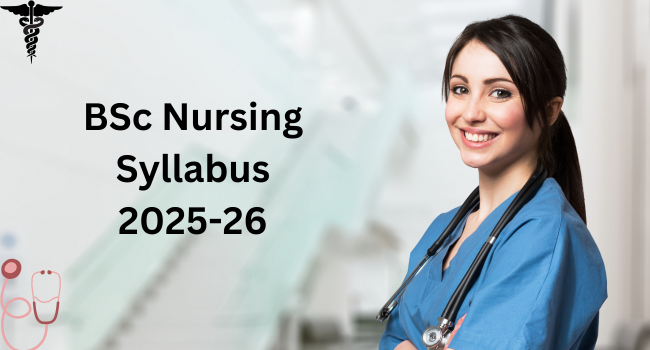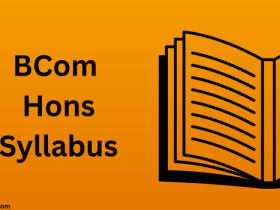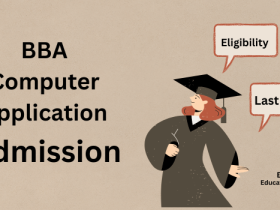No specific BSc Nursing syllabus updates are available in the provided links for 2025. The listed university websites do not currently contain BSc Nursing syllabus information for the 2025 academic year. (Updated 19 Sep 2025)
No current BSc Nursing syllabus 2025 information is available from the provided university sources. The listed university websites do not show any updated syllabus documents for BSc Nursing 2025 as of September 6, 2025. (Updated 6 Sep 2025)
No current BSc Nursing syllabus 2025 information is available in the provided official university links. The listed university websites do not show any updated syllabus documents for BSc Nursing 2025 as of August 24, 2025. (Updated 24 Aug 2025)
BSc Nursing Syllabus 2025-26: The program of BSc in the specialization of Nursing is a 4-year program that is focused on teaching students the aspects of science that are correlated with nursing. The syllabus of BSc Nursing is revised regularly to ensure that students are aware of the most recent and important topics and related subjects. Students desiring to pursue this nursing program in the next session of 2025-26 at any institution are advised first to get all the required information about its syllabus. Aspiring students of BSc Nursing can refer to this article to get answers to all their questions about the syllabus of this course.
BSc Nursing Syllabus 2025-26
INC (Indian Nursing Council) is the statutory body that has given approval to BSc Nursing course. This course is offered for a duration of 4 years. Interested students can pursue this allied medical course at the level of undergraduate. The syllabus of the BSc in Nursing program is created with the primary aim of making students well-equipped for working as professional nurses. Via the 8 semesters of this course, enrolled students get knowledge about both theory and practice-based aspects of nursing.
Candidates who have opted for the Science (PCB) stream in their 12th class are considered as eligible for BSc Nursing course. Those who have obtained any diplomas in nursing like GNM, will be eligible for BSc Nursing Admission 2025. Aspiring students of this course should know that some of the subjects included in the syllabus of BSc Nursing are Introduction to Nursing Administration, Mental Health Nursing, and others.
BABA FARID UNIVERSITY OF HEALTH SCIENCES B.Sc Nursing Syllabus
Sardar Patel University B.Sc Nursing Syllabus
indian nursing council bsc nursing syllabus
MADHYA PRADESH MEDICAL SCIENCE UNIVERSITY, JABALPUR, M.P. B.Sc. NURSING FOUR YEAR DEGREE COURSE
BSc Nursing Syllabus Overview
The syllabus of the Bachelor of Science in Nursing is created in such a way that both conceptual and practical aspects are covered over the duration of 4 years. More focus is given to the fundamental subjects of nursing, such as Pediatric nursing, Physiology, Psychology, and many more. The 4 duration of BSc Nursing is further divided into 8 semesters, equally divided into 2 semesters each year. Every year of this program is centered on teaching a specific area of nursing, which makes the enrolled students professionals in the nursing field by the end of the course.
A complete overview of the BSc in Nursing course is mentioned in the table below:
| Category | BSc in Nursing Syllabus |
| Level of Program | Undergraduate Degree |
| Full Form | Bachelor of Science in Nursing |
| Total Duration | 4 years |
| Admission Process | NEET/University-conducted Entrance Exams |
| Total Semesters | 8 semesters |
| Authority | INC (Indian Nursing Council) |
BSc Nursing Syllabus Year-wise
All the institutions based in India are instructed to offer the BSc in Nursing course in a duration of 4 years, which is further categorized by the universities into 2 semesters each. There are some subjects with specific objectives that are mandated by the INC to be included in the syllabus of BSc Nursing. We have very specifically broken down the vast syllabus of the BSc in Nursing into year-wise categories.
Year-wise syllabus of BSc Nursing as follows:
BSc Nursing Syllabus 1st Year
The first-year BSc in Nursing is mainly based on the basic concepts of nursing. Several subjects and sub-topics of those subjects like Nursing Foundation, Anatomy, Sociology, and others are included in the 1st year curriculum of BSc Nursing.
The list of subjects included in BSc Nursing 1st year are as follows:
| Semester | Subject | Topics |
| Semester I | General English/Communicative English | Basic English Grammar,
Sentence Formation, Basic speaking skills Writing skills for patient’s documentation, reporting, etc. |
| Nursing Foundation I | Basic nursing procedures, patient’s care,first aid, nursing hygiene, introduction to common nursing concepts, and maintaining effective human relations with patients and their families. | |
| Psychology | Personality analysis of patients, Behavioral psychology, emotions, mental health, developmental psychology, etc. | |
| Anatomy | Sensory System, Circulatory and Lymphatic System, Muscular System, Respiratory System, Endocrine System, and many other anatomical studies of the human body. | |
| Physiology | Cell structure and its functions, Genetics and evolution, Biotechnology and its application, Organs, Pharmacology, and others. | |
| Sociology | Inter-relationship of patients and their families, Social institutions,family structure, human behavior, social interaction and culture, etc. | |
| Semester 2 | Nutrition and Dietetics | Community nutrition, Balanced diets, Food preservation, Food safety, Nutrition principles, Food science, Human physiology, Nutrition principles, Food quality analysis, etc. |
| Nursing Foundation 2 | Health and illness concepts, Personal hygiene care, wound care, Emergency nursing, medical surgical nursing, community health nursing, and related nursing concepts. | |
| Health Nursing Information and Technology | Concepts of computers, Use of Internet and e-mail, Hospital Management
System, MS Powerpoint, MS Excel, etc. |
|
| Biochemistry | Microscopy, Composition and metabolism of Carbohydrates, Structure and functions of
Cell membrane, Composition and metabolism of Lipids, Immunochemistry, etc. |
BSc Nursing Syllabus 2nd Year
The level of subjects which are included in the second of BSc Nursing are more advanced as compared to first year. Many sub-topics of pharmacology, pathology, bioethics and others are included in the subjects that an enrolled student of BSc in Nursing needs to study in second year.
A detailed information about the subjects of BSc Nursing 2nd year are as follows:
| Semester | Subject | Topics Covered |
| III | Applied Microbiology & Infection Control | Fundamentals of microbiology, Best practices for infection prevention and control in healthcare settings, Immune responses and vaccination principles, Techniques for effective sterilization and disinfection, Managing and preventing healthcare-associated infections |
| Pharmacology I | Introduction to pharmacological principles and drug development, Routes of drug delivery and their clinical implications, Pharmacodynamics, Common side effects and drug interactions, Safe medication practices and patient education | |
| Pathology I | Basic concepts of pathology: disease mechanisms and classifications, Inflammatory responses and healing processes, Pathophysiology of fluid and electrolyte imbalances, Understanding neoplasia: types and effects, Implications of pathology for nursing interventions | |
| Adult Health Nursing I | Essential concepts in medical-surgical nursing, Comprehensive patient care in the perioperative phase, Assessment and management of acute illnesses across various systems, Introduction to critical care nursing principles, Collaborative approaches in acute healthcare settings | |
| Professionalism, Ethics & Bioethics | Role of professionalism in nursing practice, Ethical frameworks for decision-making in healthcare, Advocacy for patient rights and informed consent, Navigating ethical challenges in clinical environments, Understanding legal aspects relevant to nursing practice | |
| IV | Pharmacology II | Advanced concepts in pharmacology, Psychotropic medications and their nursing considerations, Overview of chemotherapeutic agents and their applications, Pain management pharmacology, strategies and considerations, Responsible use of antibiotics. |
| Pathology II & Genetics | Study of blood disorders and their clinical significance, Genetic principles and their relevance in nursing practice, Understanding chromosomal disorders, Clinical implications of hematological conditions, Integrating genetic assessment into patient care | |
| Adult Health Nursing II | Approaches to nursing care for the aging population, Management of chronic health conditions in older adults, Culturally competent care in geriatric nursing, Ethical dilemmas in the care of elderly patients, Principles of rehabilitation, etc. | |
| Educational Technology/Nursing Education | Impact of technology on nursing education practices, Effective learning strategies for nursing students, Development and evaluation of nursing curricula, Incorporating simulations and multimedia in teaching, etc. |
BSc Nursing Syllabus 3rd Year
In the third year curriculum of BSc Nursing, students have to study more advanced subjects of the concepts related to nursing. At this level, candidates gain enough knowledge of handling patients in multiple varying settings admitted at the hospitals for various specific reasons. More focus is given to the child and mental health nursing.
Names of subjects and its topics of 2nd year of BSc in Nursing are mentioned in the below table:
| Semester | Subject | Topics Covered |
| V | Child Health Nursing I | Growth and development milestones, pediatric nursing for common conditions, newborn care practices, immunization schedules, nutritional needs of children. |
| Mental Health Nursing I | Basics of psychiatric nursing, mental health assessments, therapeutic communication skills, care for anxiety and mood disorders, etc. | |
| Nursing Management & Leadership | Principles of nursing leadership, organizational behavior, human resource management, essentials of nursing administration, conflict resolution strategies. | |
| Nursing Research & Statistics | Introduction to research methodologies, research process overview, study design types, sampling methods, data analysis techniques in nursing research. | |
| Health/Nursing Informatics & Technology | Role of technology in healthcare, management of electronic health records, principles of telemedicine, data privacy in nursing, and many more. | |
| Introduction to Forensic Nursing & Indian Laws | Role of forensic nursing, handling medico-legal cases, overview of the Indian legal system, healthcare laws and regulations, ethical considerations in forensic practice. | |
| VI | Child Health Nursing II | Advanced pediatric care techniques, management of congenital disorders, nursing for childhood cancers, care for high-risk neonates, developmental support interventions. |
| Mental Health Nursing II | Care strategies for personality disorders, management of organic mental health issues, principles of mental health rehabilitation, multidisciplinary mental health approaches. | |
| Community Health Nursing I | Fundamentals of epidemiology, community health education, community diagnosis, family planning strategies, health promotion and disease prevention initiatives. | |
| Midwifery/Obstetrics & Gynecology I | Antenatal care practices, management of labor and delivery, postpartum education, family planning counseling, nursing care for obstetric complications. |
BSc Nursing Syllabus 4th Year
One of the two semesters of BSc Nursing 4th year is completely dedicated to gynecology and midwifery. Various topics circling these two topics are included in the 7th semester of BSc Nursing. However, in the 8th semester of this course, students are required to complete an internship as a nurse at any hospital or clinic. Hence, the BSc in Nursing course is completed making its students perfectly skilled to work as a nurse full-time.
A detailed table of subjects of BSc Nursing 4th year has been listed below:
| Semester | Subject | Topics Covered |
| VII | Community Health Nursing II | Advanced community health practices, rural and urban health frameworks, community nurse roles in disease prevention, health policy advocacy strategies, evaluation of public health programs. |
| Midwifery/Obstetrics & Gynecology II | Management of high-risk pregnancies, addressing obstetric emergencies, neonatal care protocols, gynecological health issues, education and support for families. | |
| Internship/Residency | Clinical placements across community health, adult health, child health, mental health, and midwifery settings, hands-on nursing practice experiences. | |
| VIII | Internship/Residency (Continued) | Extended clinical practice in specialized fields, readiness for professional nursing roles, etc. |
BSc Nursing Elective Subjects 2025:
BSC Nursing syllabus allows students to develop knowledge and skills in specific areas. There are various elective subjects introduced by NEP 2020 to enhance skills. Students can choose elective subjects of their choice according to their interests. Below are some elective subjects mentioned students must know:
- Human Value
- Sports health
- Psychiatric nursing
- Chold Health
- Pathophyisiology
- Nutrition
- Community Health Nursing
- Personlaity Deveopment
- Helath Economics
BSc Nursing Entrance Exam Syllabus 2025
For the allied course of BSc in Nursing, admissions are mostly granted on how well an applicant performs in all the related entrance exams. One of the popular entrance exams for BSc Nursing is NEET, which is conducted at the national-level. The entrance exam syllabus for this course includes the topics from three major Science subjects (Biology, Physics, and Chemistry) taught in class 11th and class 12th. Topics from which the question paper for BSc Nursing entrance examination is prepared are taught in all the boards of education like CBSE, NIOS, ICSE, and others.
BSc Nursing Entrance examination is conducted to check whether the aspirant of this course has the capability of grasping skills and working as a nursing professional or not. One of the most important tips to prepare for these entrance exams is revising the NCERT books for all the three major subjects.
BSc Nursing Entrance Exam Syllabus Physics
There are several difficult topics included in the Physics subject and students often find this subject more difficult than the others. Students who plan to prepare for the BSc Nursing entrance test like NEET are advised to go through all the topics of Physics that they have studied in class 11th and 12th. A detailed table of BSc Nursing entrance exam syllabus for Physics is created below.
| Physics Topics for BSc Nursing Entrance Exam | |
| Overview of the Physical World and Measurement | Concepts in Electrostatics |
| Principles of Kinematics | Exploring Current Electricity |
| Fundamentals of Newton’s Laws of Motion | Magnetic Effects and Principles of Magnetism |
| Concepts of Work, Energy, and Power | Principles of Electromagnetic Induction and AC Circuits |
| Understanding Gravitational Forces | Nature and Properties of Electromagnetic Waves |
| Characteristics of Bulk Matter | Dual Nature of Matter and its Radiative Effects |
| Insights into Kinetic Theory | Structure and Behavior of Atoms and Nuclei |
| Behavior and Properties of Ideal Gases | Basics of Electronic Devices |
| Dynamics of Particle Systems and Rigid Bodies | Thermodynamics, Oscillations, and Wave Motion |
BSc Nursing Entrance Exam Syllabus Chemistry
For the entrance test of BSc in Nursing, Chemistry is considered a scoring subject with a moderate difficulty level. Hence, concerned students can easily boost up their grades in the entrance test if they have good command over key concepts of Chemistry for both class 11th and 12th. In the below section of the article, aspirants can learn about all the important topics of Chemistry which they need to study for the entrance exam.
| Chemistry Topics for BSc Nursing Entrance Exam | |
| Basic Principles of Chemistry | Methods of Isolation for Elements |
| Structure and Behavior of Atoms | Key Characteristics of P-Block Elements |
| Element Classification and Periodic Trends | Introduction to Coordination Chemistry |
| Chemical Bonding: Theory and Models | Properties and Reactions of Haloalkanes and Haloarenes |
| States of Matter: Characteristics of Gases and Liquids | Alcohols, Phenols, and Ethers: Structures and Reactions |
| Thermodynamic Principles and Their Applications | Overview of Organic Compounds and Functional Groups |
| Understanding Chemical Equilibrium | Environmental Chemistry: Principles and Practices |
| Fundamentals of Electrochemistry | Importance of Biomolecules in Biological Systems |
| Kinetics: Reaction Rates and Mechanisms | Polymers: Types and Applications in Everyday Life |
BSc Nursing Entrance Exam Syllabus Biology
Biology is the most important subject for any entrance exam of the course BSc in Nursing, as this subject forms the primary basis of the mentioned course. For this subject, applicants are advised to have a depth knowledge of Biology. All the topics from which questions can be asked in the BSc Nursing Entrance Exam are mentioned in the below table.
| Biology Topics for BSc Nursing Entrance Exam | |
| Exploration of Biodiversity | Human Welfare and Biological Sciences |
| Mechanisms of Reproduction | Plant Physiology: Growth and Development |
| Organization of Life: Animal and Plant Structures | Biotechnology: Principles and Applications |
| Foundations of Genetics and Evolution | Systems of the Human Body |
| Cellular Anatomy and Functions | Ecological Principles and Environmental Studies |
BSc Nursing General Knowledge Syllabus
A table of all the topics of General Knowledge which need to be studied by the students for their BSc Nursing Entrance Exam is created below.
| General Knowledge Topics | |
| Current Affairs and Recent Developments | Science and Technology Innovations |
| History: Key Events and Figures | Health and Nutrition Awareness |
| Geography: Countries, Capitals, and Major Landforms | Environmental Issues and Conservation |
| Basic Economics and Financial Literacy | Important Awards and Honors |
| Political Science: Governance and Political Systems | General Knowledge of Indian Culture and Heritage |
BSc Nursing Syllabus Post Basic
Post Basic BSc Nursing is a professional course which is offered in a duration of 2 years. It is a more advanced nursing course, the syllabus of which includes many subjects about nursing, starting from the basic to advanced levels. Students who want to opt for Post Basic BSc Nursing can go through the below-mentioned data to get an idea about what all they will have to study after enrolling into the course. We have created a syllabus table for both the years of BSc Nursing PB.
BSc Nursing PB Subjects First Year
After enrolling in the Post Basic BSc Nursing, students will first need to learn about the basic subjects related to the subjects of nursing. Many fundamental concepts are included in the first year of the course which makes a student well learned in the areas concerned with the nursing field. Subjects of Post Basic BSc Nursing 1st year are such that they will also be of huge help in the preceding years of the course.
For more information about the syllabus of Post Basic BSc Nursing first year, students can refer to the below table:
| Subject | Description |
| Foundations of Nursing | Introduces core nursing concepts, ethical principles, and the role of a nurse in healthcare. |
| Pediatric Nursing | Focuses on the health care and nursing practices for children and adolescents. |
| Diet and Nutrition | Explores the fundamentals of nutrition, dietary guidelines, and their application in nursing. |
| Microbial Health | Studies microorganisms, their effects on human health, and the significance of infection control. |
| Biochemical Principles | Covers the chemical processes within the body, integrating biochemistry with nursing practice. |
| Clinical Nursing | Involves the assessment and care strategies for patients with various medical and surgical needs. |
| Mental Health Nursing | Examines psychological aspects of care, emphasizing mental well-being and patient support. |
| Professional Communication | Develops communication skills essential for effective interactions in healthcare settings. |
| Maternal and Child Health | Addresses nursing care during pregnancy, childbirth, and early childhood, promoting family health. |
BSc Nursing PB Subjects Second Year
In the second and final year of the Post Basic BSc Nursing course, students learn about several topics related to the practical application of nursing concepts. In the final semester of the BSc Nursing PB, enrolled students might also have to do an internship at any hospital or clinic.
| Subject | Description |
| Foundations of Nursing Education | Examines teaching strategies, learning theories, and curriculum development in nursing education. |
| Social Dimensions of Health | Analyzes the impact of societal structures on health outcomes and healthcare access. |
| Public Health Nursing | Focuses on health promotion and disease prevention within community settings. |
| Research Methodologies in Nursing | Introduces essential research concepts and statistical methods applicable to nursing practice. |
| Mental Health Care | Explores strategies for supporting individuals with mental health challenges and promoting recovery. |
| Community Health Initiatives | (Assumed clerical error – repeat subject) Focuses on nurses’ roles in enhancing community health. |
| Healthcare Leadership | Covers essential principles of management and leadership in nursing and healthcare environments. |
| Nursing Research Project | Involves planning and executing a research project, utilizing evidence-based practices in nursing. |
INC Syllabus for BSc Nursing
Indian Nursing Council has revised the syllabus for BSc Nursing as per the new guidelines of UGC and NEP 2020. The re-creation of the course is done by keeping in mind that a uniform standard of nursing education is ensured in our country. Several foundational, core and elective subjects are included in the INC syllabus for BSc Nursing program. Additionally, the institution also introduces many events that will enhance the practical skills of an enrolled student. Hence, many seminars, presentations, assessments, and others are included in the curriculum of BSc Nursing.
A table consisting of the syllabus of BSc Nursing as created by INC is created below:
| Year | Subject | Overview |
| First Year | Nursing Education Foundations | Examines theories and practices in nursing education, focusing on curriculum and teaching methods. |
| Advanced Clinical Practice | Enhances advanced clinical skills and nursing interventions for improved patient care. | |
| Research Methods | Covers key concepts in nursing research, including study design and statistical analysis. | |
| Clinical Specialization I | Provides specialized training in a specific clinical area. | |
| Second Year | Healthcare Administration | Introduces management principles and leadership strategies in nursing. |
| Research Project | Involves conducting and presenting a comprehensive nursing research project. | |
| Clinical Specialization II | Focuses on developing expertise in an additional clinical specialty. |
AIIMS BSc Nursing Syllabus
The program of BSc Nursing program is offered at AIIMS for a duration of 4 years. Students should note that the duration of this course can be extended to 8 years. All India Institute Of Medical Sciences creates the syllabus for BSc Nursing in such a way that an enrolled student is equipped with all the necessary skills to become a nurse or start working as midwives. AIIMS includes several research works in the curriculum of BSc in Nursing and keeps on arranging various seminars and practical assessments that are considered a necessary part of the program. The institution also requires the students to dedicate some of the time to getting a clinical experience so that they can put their theoretical knowledge into practice.
The details of BSc Nursing syllabus as created by AIIMS are stored in the below-created tabulated form:
| AIIMS BSc Nursing Syllabus | |||
| First Year | Second Year | Third Year | Fourth Year |
| Anatomy | Pharmacology | Sociology | Midwifery and Obstetrical Nursing |
| Physiology | Pathology & Genetics | Child Health Nursing | Community Health Nursing II |
| Nutrition | Medical-Surgical Nursing I | Mental Health Nursing | Nursing Research & Statistics |
| Biochemistry | Community Health Nursing I | Medical-Surgical Nursing II | Management of Nursing Services and Education |
| Nursing Foundation | Communication and Educational Technology | Integrated Practice | |
| Psychology | – | – | – |
| Microbiology | – | – | – |
| Introduction to Computers | – | – | – |
| English | – | – | – |
BSc Nursing Syllabus for Practical Subjects
The practical subjects are included in the BSc Nursing syllabus for making students well-skilled in the practical approach of the mentioned course. Various practical subjects are included in all the 8 semesters of BSc in Nursing course. The practical subjects of this allied medical course have been included in the syllabus by INC (Indian Nursing Council). Hence, the same syllabus is followed by the institutions based all over India.
In the below table, candidates can find the table consisting of all the practical subjects of BSc Nursing:
| Practical Subject |
| Foundations of Nursing Practice |
| Clinical Medical-Surgical Nursing |
| Research Methods and Statistics |
| Nursing Leadership and Management |
| Nursing Research Project |
| Psychiatric Nursing Practice |
| Midwifery and Maternal Care |
| Community Health Practice |
BSc Nursing Entrance Exam 2025 Assam Syllabus:
Students who have applied for the BSc nursing entrance exam are required to check the syllabus. Below is the complete syllabus of BSc nursing. Duration of the BSc nursing Assam entrance exam is 2 hours. The question paper is divided into 4 parts containing subjects of physics, chemistry, Biology, and General knowledge. Students must check the below mentioned topics of each subjects.
Physics:
- Units and Measurements
- Heat Transfer
- Mechanics
- Vibrations and Waves
- Electricity and Magnetism
- Light and Sound
- Modern Physics
Biology:
- Living and Non-Living
- Plant Physiology
- Cell Structure and Function
- Animal Physiology
- Genetic Basis of Inheritance
- Reproduction in Plant and Animals
- Origin and Evolution of Life
- Ecology and Ecosystems
- Human Disorders
Chemistry:
- The Atomic Structure
- Chemical Bonding
- Chemical Reactions
- Mixtures
- Solutions and Solubility
- The Gas Laws
- Elements and Compounds
- The Periodic Table
- Important Concepts in Chemistry
- Organic Chemistry
General Knowledge:
- History of India
- Geography of India
- The cultural heritage of India
- Sports
- Indian Economy and Planning
- Indian Polity and the Constitution of India
- General Science, Environment and Information & Communication
- Current affairs of Regional, National, and International Importance
- Technology
FAQs:
Q) Syllabus for BSc Nursing entrance exam?
A) BSc Nursing entrance exam syllabus generally include science subjects such as physics, chemistry and Biology. The entrance exam syllabus generally holds the question of class 12th such as human anatomy, Genetics, organic chemistry, and more.
Q) NEET is required for the BSc nursing admission 2025?
A) students applying for the BSc nursing courses are required to qualify the any national level or university conducted entrance exam. NEET examination is not mandatory for BSc nursing admission 2025.
Q) How to prepare for the AIIMS BSc nursing 2025?
A) To prepare AIIMS BSc nursing admission 2025 students need to start preparing with their class 12th grade subjects. Biology subjects is the major subjects for the BSc nursing entrance exam. Practice the previous year question paper and mock test.
Q) How to get Bsc nursing syllabus 2025 26 pdf download for session 2025-26?
A) Student can download the syllabus of BSc nursing from their official university website. Students can search for BSc nursing syllabus 2025-26. The syllabus of BSc nursing will be available in PdF formate.
Q) What are the important subjects include in Assam BSc nursing entrance exam syllabus 2025?
A) Students registered for the Assam BSc nursing entrance exam must aware with the syllabus. Assam BSc entrance test will include questions from subjects such as:
- Units and Measurements
- Heat Transfer
- Mechanics
- Living and Nonliving
- Plant Physiology
- Important Concepts in Chemistry
- Organic Chemistry
- General Science, Environment and Information & Communication
- Current affairs of Regional, National, and International Importance











Leave a Reply
View Comments